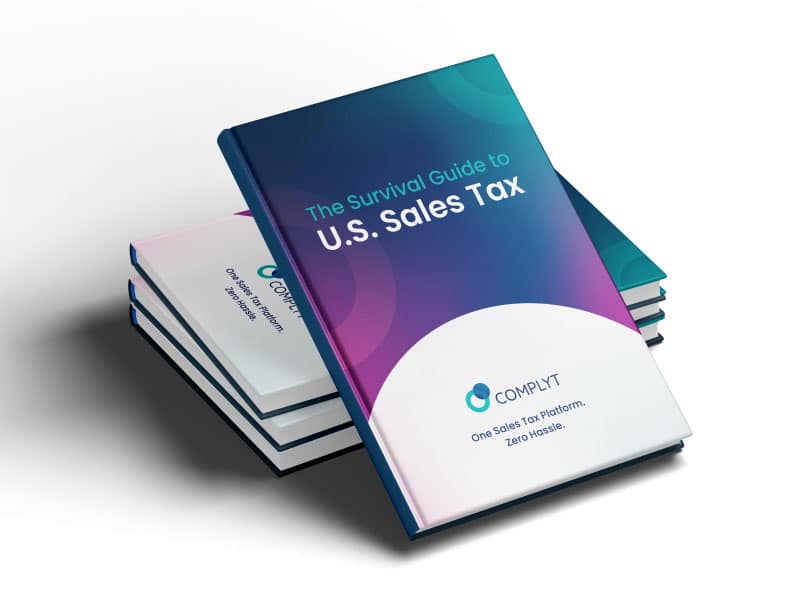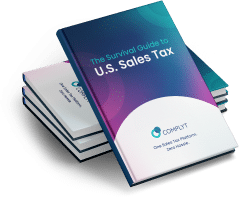What is the sales tax rate in Delaware?
Delaware is unique among the United States as one of the five states that does not have a general sales tax. Therefore, the sales tax rate in Delaware is 0%. Businesses operating in Delaware don’t have to charge their customers any sales tax on the goods and services they sell. However, businesses still need to be aware of various state-specific taxes and regulations.
Delaware charges a Gross Receipts Tax (GRT), which is a tax on the total receipts of a business, without any deductions for expenses or other costs. The Gross Receipts Tax rates vary depending on the type of business activity and range from 0.0945% to 2.0736%. This tax is not passed on to consumers and is a cost for businesses operating in the state.
While Delaware does not have a statewide sales tax, local municipalities can impose their taxes, like the city of Wilmington, which has a 1.25% tax on hotel accommodations and a 0.8% wage tax for residents.
When should your business collect Sales Tax in Delaware?
Since Delaware does not have a statewide sales tax, businesses do not need to collect sales tax from their customers. Instead, businesses operating in Delaware should be aware of the Gross Receipts Tax, which they are responsible for paying. The Gross Receipts Tax applies to businesses with total receipts exceeding $80,000 annually or total monthly receipts over $6,667.
Is Gross Receipts Tax and Sales Tax the same thing?
No, sales tax and gross receipts tax are not the same, even though they are both taxes on sales. Sales tax is levied on the consumer, while gross receipts tax is levied on the seller.
When consumers make a purchase,they pay sales tax as part of the total purchase price. With gross receipts tax, it is the business that pays a percentage of its total sales or gross receipts as tax to the government monthly, quarterly, or annually.
Another vital difference is that sales tax comes with a number of exemptions while gross receipts tax is applied to sales across the board.
Delaware Physical Sales Tax Nexus
If you have a physical presence in Delaware, known as a nexus, you may be subject to certain local taxes, such as hotel accommodation taxes. A nexus can be established in several ways, including:
- Owning or leasing property in the state
- Having employees in the state
- Storing inventory in the state
- Attending trade shows or conducting business in the state
Sales Tax Physical Nexus checklist for Delaware
When determining if you have a physical nexus in Delaware, consider the following factors:
- Do you own or lease property in Delaware?
- Do you have employees working in Delaware?
- Do you store inventory or goods in Delaware?
- Do you attend trade shows or conduct business activities in Delaware?
If you answer “yes” to any of these questions, you likely have a physical nexus in Delaware and may be subject to local taxes.
Delaware Economic Nexus Threshold: Revenue, Thresholds and Transactions
Since Delaware doesn’t have a statewide sales tax, there’s no economic nexus threshold to consider for sales tax collection purposes. However, businesses need to be aware of the Gross Receipts Tax thresholds.
Businesses with total annual receipts over $80,000 or total monthly receipts over $6,667 are required to pay the Gross Receipts Tax. If your business falls below these thresholds, you’re exempt from the tax.
Which services are taxable in Delaware?
In Delaware, there’s no sales tax, but certain services are subject to the Gross Receipts Tax. The tax rates differ depending on the type of service provided. Here are some examples of taxable services:
- Amusement and recreation services
- Personal services (e.g., hair and beauty salons)
- Repair services
- Contracting services
- Management services
- Professional services
- Rental and leasing services
How much is Delaware clothing tax?
Delaware does not charge a sales tax on clothing, as there is no statewide sales tax. However, businesses selling clothing in Delaware should be aware of the Gross Receipts Tax, which applies to their total receipts. So while your business won’t be claiming sales tax directly on clothing sales, clothing sales will affect a business’s GRT obligations.
Delaware Online Sales Tax: Are SaaS and Digital Services Taxable?
Delaware doesn’t charge sales tax on SaaS (Software as a Service) or digital services, as it doesn’t have a statewide sales tax. But even though something like Delaware SaaS sales tax isn’t a concern, businesses providing these services in Delaware should consider the Gross Receipts Tax, which applies to their total revenue and as a result does include the sale of SaaS products.
How can a business get a sales tax permit in Delaware?
Businesses may not require a sales tax permit in Delaware, but if your business is required to pay the Gross Receipts Tax, you must obtain a Delaware business license.
Here’s how to get one:
- Determine your business type and activities to choose the appropriate license category.
- Visit the Delaware Division of Revenue’s online portal, One Stop Business Licensing and Registration.
- Complete the application by providing business details, contact information, and a description of your business activities.
- Pay the licensing fee, which varies depending on your business type and location.
- Wait for your license to be processed and issued, usually within 10 business days.
What is the required frequency for Gross Receipts Tax returns in Delaware?
The frequency for filing Gross Receipts Tax returns depends on the amount of tax owed:
- If your tax liability exceeds $5,000 per month, you must file monthly.
- If your tax liability is less than $5,000 per month but exceeds $1,500 per quarter, you must file quarterly.
- If your tax liability is less than $1,500 per quarter, you may file annually.

